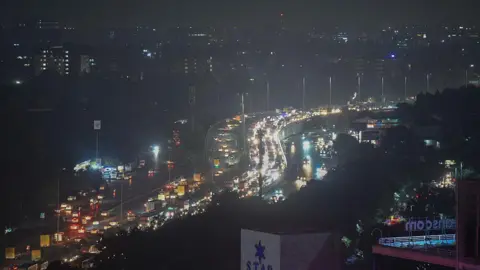In India’s wealthiest state, Maharashtra, a growing conflict surrounding language and identity has escalated into violence and protests. The tension erupted after the state government mandated the incorporation of Hindi as a third language in state-run primary schools, alongside Marathi and English. This decision aligns with a central government policy mandating multilingual education but has ignited fierce backlash from civil society and political opposition, who accuse the state of imposing Hindi, a language predominantly spoken in northern India, onto Marathi speakers.
Language has long been a sensitive topic in India, with many states like Maharashtra being established based on linguistic identities post-independence. Local languages often symbolize regional pride, making any perceived intrusion a threat to cultural integrity. Similar unrest was seen last year when Kannada activists in Bengaluru demanded greater visibility for their language over English.
As linguistic tensions rise, fears have intensified since the Bharatiya Janata Party (BJP) took power in 2014, with leaders making controversial comments regarding the promotion of Hindi over local languages. To quell the unrest, the Maharashtra government, which is currently led by a BJP coalition, retracted its Hindi language decision and introduced a committee to reassess the three-language structure.
Despite this, the controversy continues as the state approaches long-delayed municipal elections in major cities, including Mumbai. This electoral environment has ignited a political battle, with parties accusing one another of exploiting language issues for electoral gain.
Reports of violence against non-Marathi speakers add to the atmosphere of unease. A particularly disturbing incident involved the assault of individuals in Thane district who allegedly failed to speak Marathi, with the Maharashtra Navnirman Sena (MNS), known for its aggressive stance, implicated in several attacks aimed at enforcing language compliance.
In a surprising turn of events, two once-rival political leaders, Uddhav Thackeray of Shiv Sena (UBT) and Raj Thackeray of MNS, joined forces in a recent rally, united in their opposition to Hindi imposition. Observers note that this alliance may enhance their electoral prospects amidst the heightened emotions surrounding the linguistic issue, which resonates deeply with the residents of Mumbai.
Historically, language politics have stirred strong sentiments and led to aggressive campaigns against certain migrant groups, a trend that appears to be reinvigorated as the Hindi-speaking population in Mumbai has surged according to census reports. While some speculate that the emotional appeal of the Marathi language will rally voters in the upcoming elections, critics have voiced concerns over the long-term viability of such divisive politics, emphasizing the need for leaders to prioritize impactful policies that improve lives rather than sow discord.
Experts argue that while linguistic identity is significant, the focus must shift towards real progress, calling for constructive dialogue to address these urgent issues without descending into violence and further division.
Language has long been a sensitive topic in India, with many states like Maharashtra being established based on linguistic identities post-independence. Local languages often symbolize regional pride, making any perceived intrusion a threat to cultural integrity. Similar unrest was seen last year when Kannada activists in Bengaluru demanded greater visibility for their language over English.
As linguistic tensions rise, fears have intensified since the Bharatiya Janata Party (BJP) took power in 2014, with leaders making controversial comments regarding the promotion of Hindi over local languages. To quell the unrest, the Maharashtra government, which is currently led by a BJP coalition, retracted its Hindi language decision and introduced a committee to reassess the three-language structure.
Despite this, the controversy continues as the state approaches long-delayed municipal elections in major cities, including Mumbai. This electoral environment has ignited a political battle, with parties accusing one another of exploiting language issues for electoral gain.
Reports of violence against non-Marathi speakers add to the atmosphere of unease. A particularly disturbing incident involved the assault of individuals in Thane district who allegedly failed to speak Marathi, with the Maharashtra Navnirman Sena (MNS), known for its aggressive stance, implicated in several attacks aimed at enforcing language compliance.
In a surprising turn of events, two once-rival political leaders, Uddhav Thackeray of Shiv Sena (UBT) and Raj Thackeray of MNS, joined forces in a recent rally, united in their opposition to Hindi imposition. Observers note that this alliance may enhance their electoral prospects amidst the heightened emotions surrounding the linguistic issue, which resonates deeply with the residents of Mumbai.
Historically, language politics have stirred strong sentiments and led to aggressive campaigns against certain migrant groups, a trend that appears to be reinvigorated as the Hindi-speaking population in Mumbai has surged according to census reports. While some speculate that the emotional appeal of the Marathi language will rally voters in the upcoming elections, critics have voiced concerns over the long-term viability of such divisive politics, emphasizing the need for leaders to prioritize impactful policies that improve lives rather than sow discord.
Experts argue that while linguistic identity is significant, the focus must shift towards real progress, calling for constructive dialogue to address these urgent issues without descending into violence and further division.






















